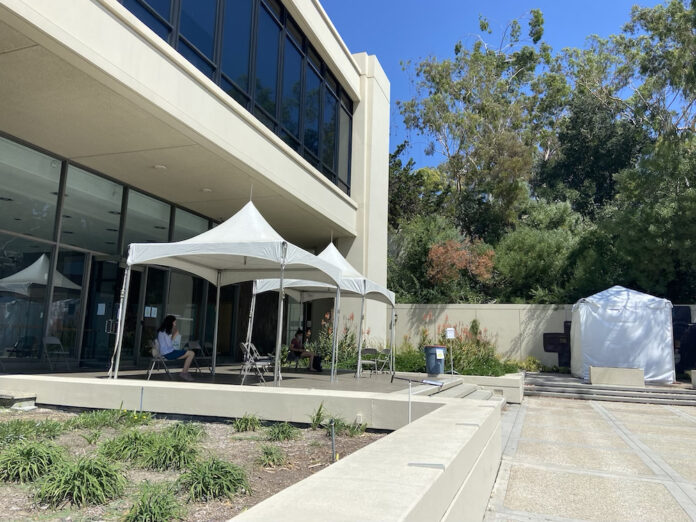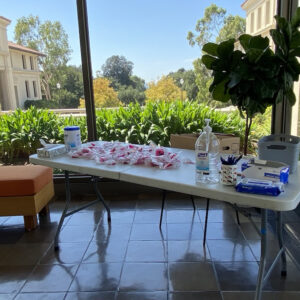
In response to the student body’s return, the COVID Operations Group (COG) created safety guidelines for students to follow. The role of COG is to manage positive cases and ensure the safety of close contacts, according to Marty Sharkey, the vice president of communications and institutional initiatives and co-chair of COG. COG created a public data spreadsheet, updated weekly, that reports the number of found positive cases and monitors their status.
There have been six positive cases among the Occidental community since Aug. 1, but no new cases since Sept. 5. Occidental has a 98 percent vaccination rate as of Aug. 25. Since the FDA has approved the Pfizer vaccine, Occidental will be requiring all students who previously were not vaccinated due to personal reasons to be vaccinated by Oct. 4, according to Sharkey.
James Uhrich, vice president for information and technology services (ITS) is the chief information officer (CIO) and co-chair of COG. He said that students can take on the responsibility of getting tested when they feel it is needed.
“I want students to know they have the ability to opt into testing and don’t need to wait for an email to come get tested,” Uhrich said.
If a student tests positive for COVID-19, they are immediately placed into isolation and issued a confirmatory polymerase chain reaction (PCR) test that will give results in 12 to 18 hours, according to Uhrich. Emmons staff interview the student to find out about close contacts, arrange isolation housing and connect the student with Campus Dining to facilitate meals. According to Sharkey, the contact tracing process is used to identify students that may have been in close contact with the student who tested positive. Sharkey said that close contact is defined as unmasked people who were within six feet of the positive student for over fifteen minutes.
Students will receive an email if a fellow student tests positive in their class, according to Sharkey. This email encourages students to take a COVID-19 test, though testing is not required.
In a COG meeting on Sept. 9, Vice President for Academic Affairs and Dean of the College Wendy Sternberg said the student who tests positive will not have their identity revealed to their classmates.
“We cannot tell who was positive in order to discern who was next to them on the seating chart [due to medical privacy],” Sternberg said. “To protect privacy, the entire class gets a notification of a positive and is encouraged to test themselves at the AGC [Arthur G. Coons Administrative Center].”
According to Sharkey, there is no standard procedure for professors to follow when a student tests positive or for students that cannot be in class due to being a close contact.
Uhrich said he has worked to add outdoor classrooms to help facilitate more distancing and air circulation among students. However, according to Uhrich, these outdoor classrooms lack the microphone and camera technology required to properly Zoom students, unlike some indoor classrooms.

Sharkey said one of the most effective ways to combat the spread of COVID-19 is by wearing a mask that covers both the nose and mouth. The college’s masking policy currently requires masks to be worn indoors and strongly encourages them to be worn in outdoor areas such as the Academic Quad.
According to Sharkey, the college bases its policy on several sources, including public health guidelines and guidance from Dr. Kim Shriner ‘80, the medical director of infection prevention and control at Huntington Hospital. Sharkey said Occidental’s policy is not strictly tied to the guidelines in place by the city and state. For example, while LA County is no longer requiring reduced capacity in dining spaces, Occidental has continued to decrease capacity in the Marketplace and Tiger Cooler to allow for adequate social distancing, according to Sharkey.
College policies are updated when new positive tests are received to ensure that the Occidental community stays safe, according to Sharkey. Sharkey said he strongly encourages students, staff and faculty to come to the AGC to ask questions and work with COG to help them continue to improve the school’s policies and procedures.
This article was updated at 6:39 p.m. Sept. 17 to clarify Dean Sternberg’s comment was said in a COG meeting.
![]()






























